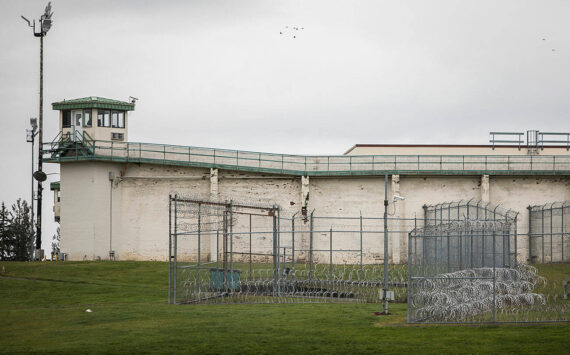Nice place you have here. Be a shame if anything happened to it
By Morf Morford
Tacoma Daily Index
I’m sure most of us have heard of Talk like a Pirate Day (September 19 of each year).
This is your (semi)official authorization to use words you might not normally use around the house or in the office like hornswoggle – to trick, deceive or scam, cackle fruit – chicken eggs, a rare treat for pirates at sea, lick-spittle – a toady, kiss-up, self-promoter, Cape Horn fever – an imaginary disease used to get out of responsibilities or bilge rat —the laziest, most worthless person on board who only takes up space and causes trouble.
Looked at together, you see a common theme; all across history there have been liars and cheaters and those who would do anything to avoid responsibility and think only of themselves and would do anything to further their own interests – even at the expense of everyone else.
Talking like a pirate (for one day) has become something of a social phenomenon, but we as a country, or at least our public discourse has not been as colorful as pirate talk but has come to resemble, or even echo, the thug talk of gangsters and 1950s “B” movies.
Let’s see how many you recognize or hear in political campaigns.
The classic line in the subtitle above “Nice place you have here. Be a shame if anything happened to it” is a perfect place to start.
On the face of it, the statement is perfectly neutral; it is a compliment followed by a concern for its continued health and prosperity.
Or is it?
Any fan of gangster movies – or anyone who has had the unfortunate experience of hearing it directly – knows better.
It’s a threat. But it’s not just any threat. It is a massive, menacing threat with no limits. But it is implied. It is not stated directly. It is vague enough to allow for “plausible deniability”.
“It was just a joke” the speaker might say. And as he walks away, you hope it was.
But you both know it wasn’t.
Ever hear this term in a gangster film – “The witness flipped”?
It has nothing to do with jailhouse gymnastics, or even coming up with a better, even more convoluted set of excuses or alibis to get out of legal prosecution. The term “flipping” is where a key witness, or even an accomplice, turns “state witness” and, after realizing that they will not escape prison time do the one thing that most terrifies gangland criminals; they tell the truth.
The stakes are high, the witness weighs the threats of legal persecution over the safety or even survival of their family from his or her former partners in crime. (1*)
In the criminal world it is certainly possible to “know too much”.
This concept was the theme (even the title) of two of Alfred Hitchcock’s early breakout films (one filmed in England in 1934, the second filmed in Hollywood in 1956).
The plot line is frighteningly simple; a witness, implicated or innocent, literally knows too much. They know, or somehow overhear, key names or details of the criminal enterprise.


Crime, like any undercover work, is on a purely “need to know basis”. If your “knowledge” exceeds the necessary bounds, you become a liability. And everyone involved knows that once you have outlived your usefulness, your days are numbered.
Jeffrey Epstein is perhaps the most notorious recent example. He knew the rules (and he knew too many names) and he had a strong sense of what was coming. (2*)
His “apparent suicide” surprised no one.
The worst crime – one with immediate repercussions is to “sing,” to tell the truth, the whole truth.
Our government has specific laws to protect those who put their own careers, their reputations – and perhaps even lives – at risk for the greater good. (3*)
Those laws are in place precisely to protect truth – and those who tell it.
No matter who or what is exposed, whistleblowers should always be protected.
They save lives and dollars and protect our national integrity.
If we denigrate, or even worse, expose them, we have not only adopted the vocabulary of thugs but their values as well.
***********
Exaggerated (and sometimes highly emotional) denials are a near-certain sign of guilt. Who, besides the guilty, proclaims “I’m innocent!”? Who, besides an intoxicated person, shouts out “I’m not drunk”?
Who, besides the guilty, would say “I wasn’t even there! I never knew the guy!”?
And as we all know, the louder it is shouted, the more we all know the real truth – the truth that literally convicts.
If you know the Godfather movies you know the one unrelenting first principle; loyalty.
Loyalty to the team or family or even cause is more important than honesty, ethics or even one’s life.
These conflicts of faith, family, personal ethics or values versus the mob are the pulse of most of the crime movies we see.
And if you saw the film Pulp Fiction, you saw that the term “take care of” could mean to preserve and protect – or to eliminate.
As always with gangster talk, the threat is implied, never specific – and always deniable.
Because this territory is so nebulous, crime figures have legal protection. These might be lawyers, but they are more than that – they are “fixers”.
Their job is very simple; keep their employer out of trouble.
If they have to “lean on”, “persuade” or even “take care of” someone, it is all part of the job description.
And many of the most prominent “fixers” have their own “fixers”.
Talk like a Pirate Day is fun, but it is only one day.
Somehow Talk like a Gangster Day keeps coming. I, for one, will be glad when we return to Talk like a Honest Responsible Grown-up Day.
(1*) Which is why we have Witness Protection programs. These are primarily for witnesses – not criminals.
(2*) https://www.foxnews.com/us/jeffrey-epstein-former-cellmate-apparent-suicide-attempt
(3*) The Whistleblower Protection Act of 1989, 5 U.S.C. 2302(b)(8)-(9), Pub.L. 101-12 as amended, is a United States federal law that protects federal whistleblowers who work for the government and report the possible existence of an activity constituting a violation of law, rules, or regulations, or mismanagement, gross waste of funds, abuse of authority or a substantial and specific danger to public health and safety.





